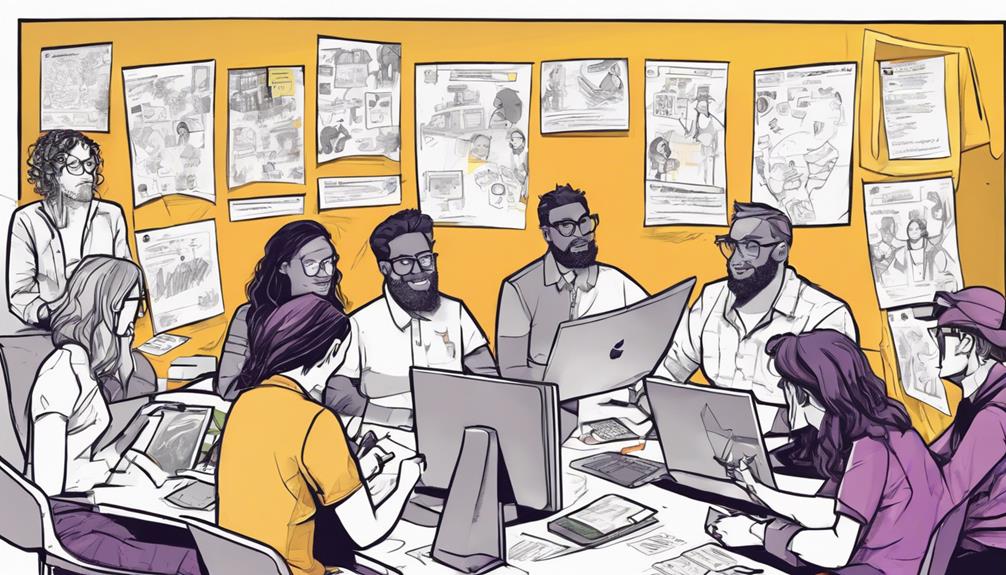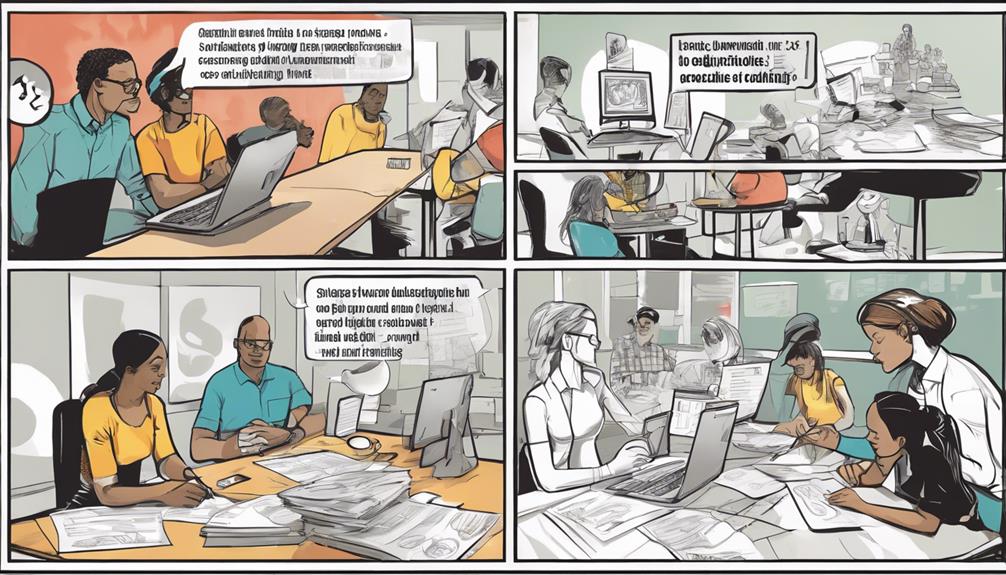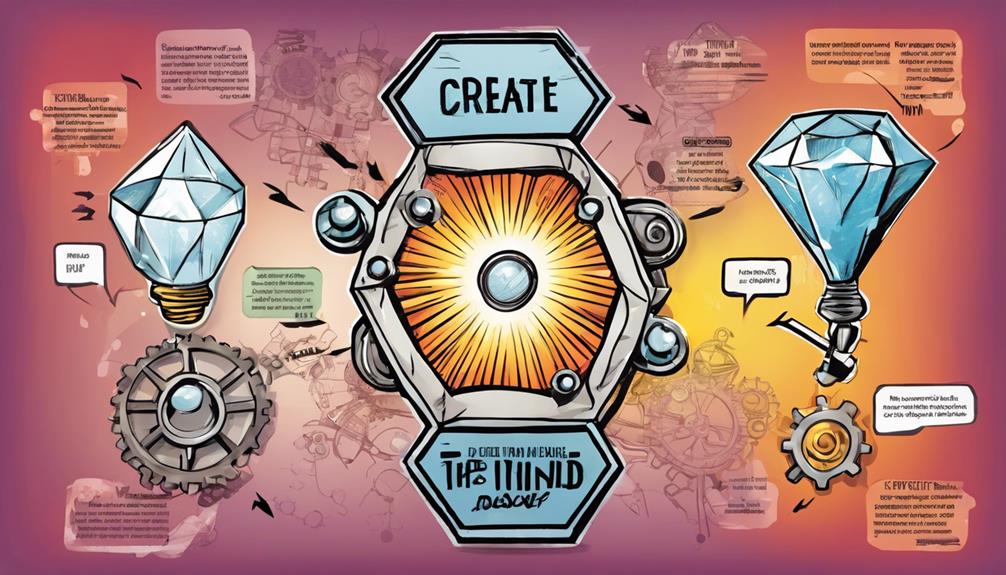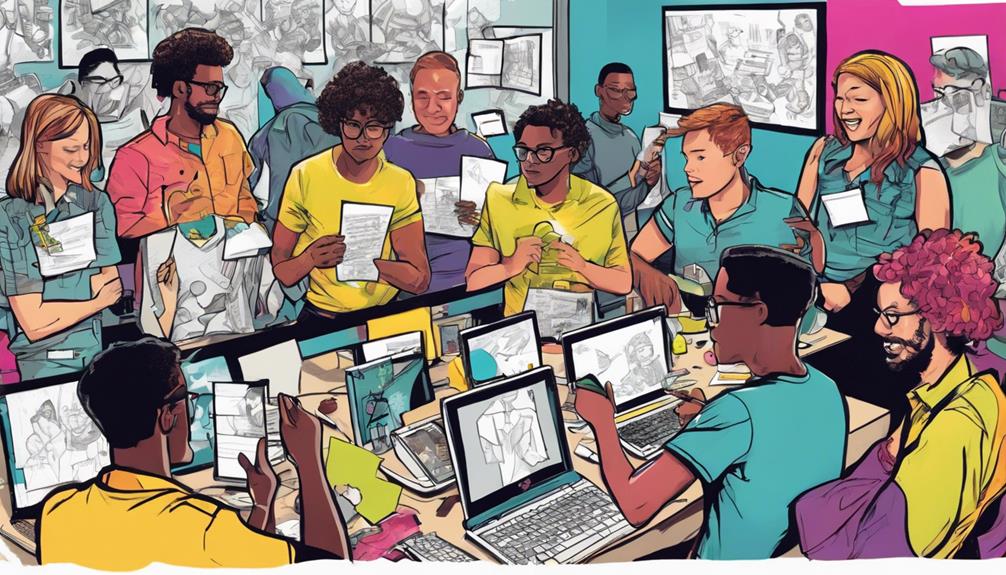Explore design thinking courses from reputable institutions like University of Virginia, MIT School, and IDEO U to boost your career. These programs focus on real-world scenarios, flexible online learning, and industry impact. Enhance your problem-solving and innovation skills with engaging courses and practical applications. Engage in top-rated certifications and workshops that cater to various learning preferences. Join a global cohort for collaborative experiences and skill refinement. Discover key certificates that offer in-depth experiences and financial assistance. Your design thinking journey begins here, with options tailored to your professional growth and skill development.
Key Takeaways
- Consider reputable programs like University of Virginia Darden School and MIT School of Management.
- Look for engaging online courses with practical applications, such as IDEO U and Stanford d.school.
- Choose programs with real-world industry impact like Frog Design and IBM.
- Seek certifications from institutions like Coursera and Interaction Design Foundation for valuable skills.
- Opt for immersive experiences in design thinking bootcamps like The Design Gym and General Assembly.
Top Design Thinking Programs
Explore some of the best design thinking programs available to kickstart your career in innovation and problem-solving.
The University of Virginia Darden School offers a thorough 20-week Design Thinking and Innovation Specialization focusing on human-centered challenges. This program provides an in-depth exploration into design thinking methodologies and equips you with the skills to tackle complex problems effectively.
MIT School of Management's Mastering Design Thinking online course is another outstanding option. This program emphasizes driving innovation through group projects, allowing you to apply design thinking principles in real-world scenarios.
Additionally, IDEO U's Foundations in Design Thinking Certificate offers a flexible 3-6 month online learning experience, perfect for those looking to enhance their problem-solving skills remotely.
With these reputable institutions like the University of Virginia, MIT School, and IDEO U offering excellent design thinking programs, you have a range of options to choose from based on your learning preferences and career goals.
Notable Design Thinking Courses
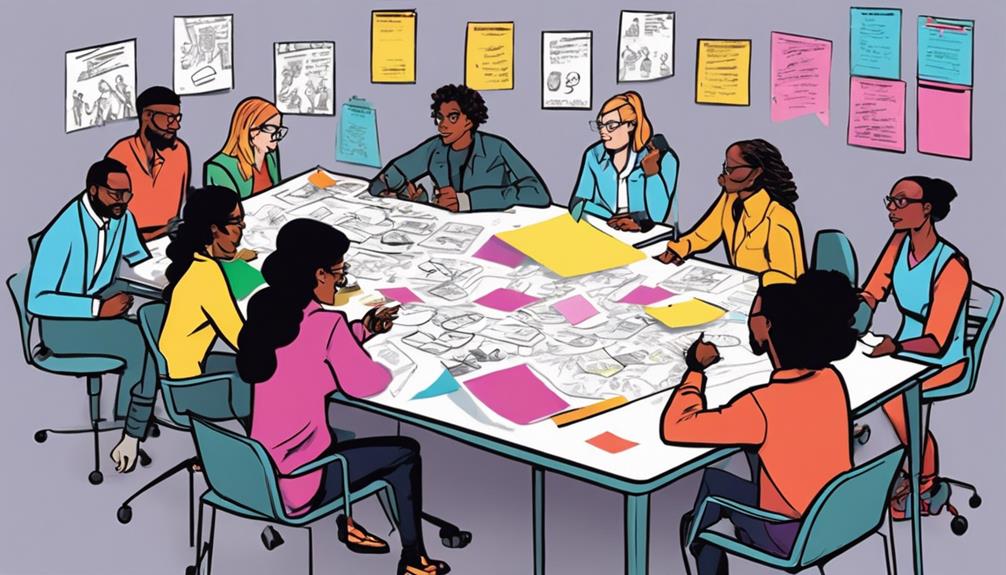
Among the notable design thinking courses available, Stanford University's d.school stands out for its innovative approach and reputation. When looking for design thinking courses that offer practical application and online accessibility, consider the following options:
- IDEO U: Provides engaging online courses with a focus on practical application through case studies.
- Frog Design: Offers courses that emphasize real-world applications and the impact of design thinking in various industries.
- IBM: Known for tailored design thinking courses that help professionals enhance their problem-solving skills effectively.
- Cornell University: Provides a Design Thinking Certificate program suitable for those involved in product, service, and infrastructure development.
These courses not only provide a solid foundation in design thinking principles but also offer opportunities for hands-on learning and interaction with a global community of learners.
Whether you're a beginner or a seasoned professional, these courses can help you enhance your design thinking skills and advance your career in the field.
Best Design Thinking Certifications

When looking to enhance your problem-solving skills and formalize your expertise in design thinking, pursuing the best design thinking certifications can provide a competitive edge in the job market.
These online courses are designed to boost your creativity and innovation in UX design, making you more adept at conducting effective design thinking workshops and gaining credibility with clients.
Whether you're a freelancer, consultant, CEO, manager, or employee seeking innovative solutions, these certifications offer valuable skills and knowledge.
Top programs like IDEO U, Stanford d.school, Coursera, MIT, and Interaction Design Foundation are known for their thorough design thinking certifications.
By enrolling in these courses, you can deepen your understanding of design methodologies and learn practical techniques to tackle complex problems.
Earning a certification in design thinking not only demonstrates your commitment to professional development but also equips you with the tools to excel in a rapidly evolving industry.
Leading Design Thinking Bootcamps
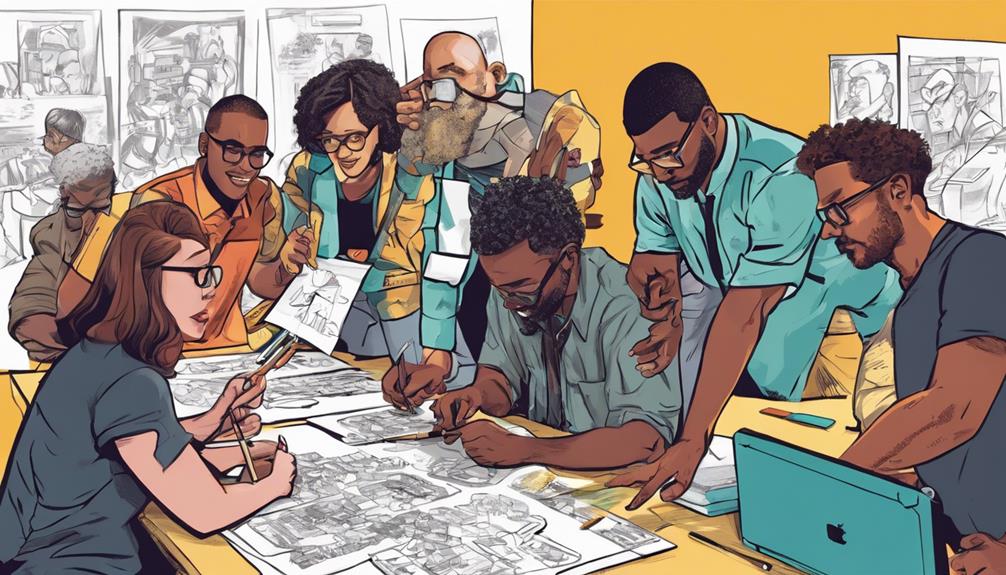
Leading Design Thinking Bootcamps offer intensive hands-on training to help participants apply design thinking methodologies in real-world situations effectively. These bootcamps focus on practical application and the following aspects:
- The Design Gym and General Assembly provide short yet immersive experiences for mastering design thinking skills.
- ASPE Training and Design Thinkers Academy specialize in facilitating design thinking sessions and fostering innovation.
- Global Knowledge offers a thorough bootcamp to enhance problem-solving abilities and foster creativity.
- In-person bootcamps are recommended for individuals and teams seeking to deeply engage in design thinking practices.
- These bootcamps emphasize real-world scenarios, allowing participants to practice and refine their design thinking skills in practical settings.
Recommended Design Thinking Courses
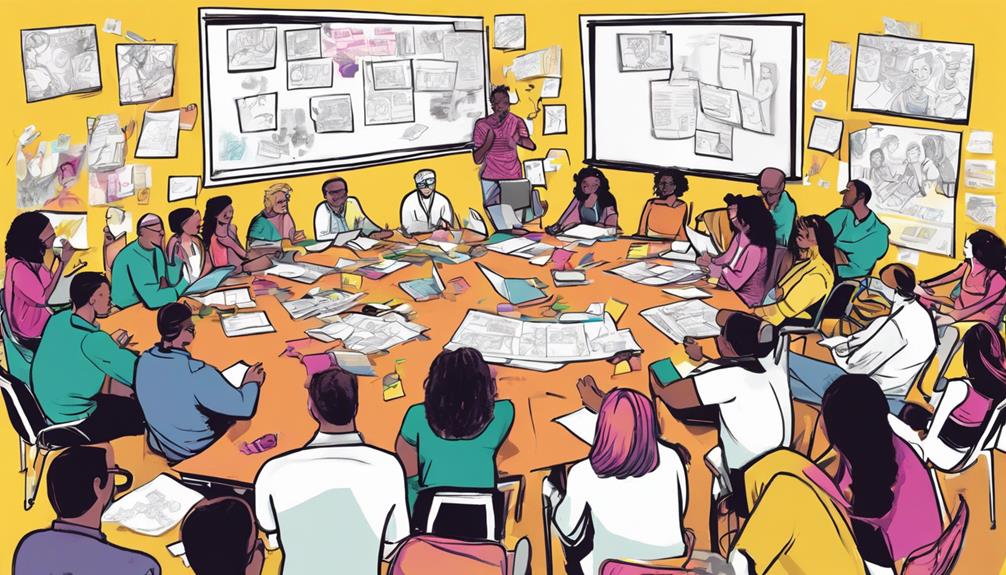
Explore the course content overview, top-rated instructors, and learning methodologies of these recommended design thinking courses.
Discover how Stanford University's d.school, IDEO U, Frog Design, IBM, and Cornell University can help you enhance your creativity and problem-solving skills.
Join a global cohort for collaborative learning experiences and drive innovation in your career.
Course Content Overview
Considering enrolling in recommended design thinking courses? Let's explore the course content overview to gain a comprehensive understanding of what you can expect. The course content overview delves into the Design Thinking Principles, Practical Applications, and methodologies covered in each program.
Here's what you can anticipate:
- Detailed breakdown of topics, methodologies, and practical applications.
- Specific skills, tools, and techniques taught in each course.
- Insights into the curriculum, instructors, and projects covered.
- Assistance in evaluating the relevance and value of the courses.
- Guidance in making informed decisions aligning with your career goals.
Understanding the content overview is essential in selecting a design thinking course that meets your personal and professional development needs. By examining these insights, you can identify the course that best suits your aspirations and equips you with the skills necessary to excel in the field of design thinking.
Top-Rated Instructors
Wondering which design thinking courses feature top-rated instructors known for their industry expertise and engaging teaching methods?
When selecting a course, consider instructors with a deep understanding of design thinking methodologies, problem-solving techniques, and the real-world application of principles. Top-rated instructors often have extensive industry experience and educational backgrounds from prestigious institutions.
Learners consistently praise these instructors for their effective teaching methods, expertise, and engaging approach to the subject matter. Look for courses taught by instructors who offer interactive, practical learning experiences that help you grasp complex design thinking concepts with ease.
Highly recommended instructors are known for delivering high-quality content, fostering creativity, and encouraging innovation in the field of design thinking. By choosing a course led by a top-rated instructor, you can enhance your skills, gain valuable insights, and kickstart your career in design thinking.
Learning Methodologies
Looking for recommended design thinking courses to enhance your skills and knowledge in the field?
When it comes to learning methodologies, understanding the user and applying a human-centered approach are key aspects to focus on.
Here are some top courses that emphasize these principles:
- IDEO U offers cohort courses for global collaboration and self-paced options, promoting a deep understanding of the user's needs.
- Stanford University's d.school provides in-person courses focusing on real business challenges, encouraging a human-centered approach to problem-solving.
- The Design Gym offers one-day bootcamps ideal for individuals and small teams, fostering empathy and user-centric design thinking.
- MIT School of Management's online program in mastering design thinking includes group projects for practical learning, emphasizing user feedback and iteration.
- University of Virginia Darden School's specialization on Coursera focuses on human-centered challenges with project-based courses, enhancing your understanding of users' perspectives.
Top-Rated Design Thinking Workshops

When choosing a top-rated design thinking workshop, consider the workshop styles, hands-on learning activities, and expert facilitation approach. These elements play an important role in enhancing your learning experience and developing your design thinking skills effectively.
Look for workshops that offer a blend of these key components to get the most out of your training.
Workshop Styles Comparison
Comparing top-rated design thinking workshops reveals varying styles and formats tailored to different learning preferences and objectives. These workshops offer immersive experiences that provide hands-on learning opportunities for participants.
Here are some key points to keep in mind when comparing workshop styles:
- Duration: Workshops can range from one-day intensives to multi-day in-depth explorations into design thinking, allowing participants to choose based on their availability and desired level of immersion.
- Collaborative Exercises: Participants engage in activities that foster collaboration, problem-solving, and creativity, enhancing the learning experience through teamwork.
- Real-World Case Studies: Workshops often incorporate real-world examples to illustrate the application of design thinking principles in practical scenarios, making the learning more relatable and impactful.
- Expert Facilitators: Featuring experienced facilitators can provide valuable insights, guidance, and mentorship throughout the workshop, enriching the learning journey.
- Tailored Learning Objectives: Workshops may focus on specific industries or skill sets, catering to the unique learning goals and professional development needs of participants.
Hands-On Learning Activities
Engage in immersive hands-on learning activities at top-rated design thinking workshops to delve deep into the design thinking process. These workshops offer participants a chance to gain practical experience by engaging in real-world problem-solving scenarios.
By actively participating in activities such as empathizing with users, defining problems, ideating solutions, prototyping, and testing, individuals get a thorough understanding of the design thinking process.
During these workshops, facilitators play an essential role in guiding participants through collaborative exercises that aim to foster creativity and innovation. Through hands-on learning activities, attendees not only learn the theoretical aspects of design thinking but also get to apply these concepts in a practical setting.
This practical experience enhances the retention and application of design thinking methodologies in real-life situations.
Whether you prefer a one-day session or a multi-day intensive workshop, these hands-on learning activities cater to different learning preferences and schedules, providing a well-rounded experience in the world of design thinking.
Expert Facilitation Approach
Experience the impact of expert facilitation in top-rated design thinking workshops, guiding you through effective problem-solving methodologies for user-centric solutions and creativity.
Design thinking workshops with expert facilitators ensure that you learn to approach challenges with innovative solutions. Here's why this approach is essential:
- Hands-On Guidance: Facilitators provide hands-on guidance through each step of the design thinking process.
- User-Centric Focus: Workshops emphasize the importance of understanding user needs and preferences.
- Collaborative Environment: Participants engage in collaborative activities to foster creativity and diverse perspectives.
- Practical Application: Facilitators help you apply design thinking principles to real-world problems for tangible outcomes.
- Iterative Process: The workshops teach you how to iterate on ideas, prototype solutions, and test them efficiently.
With this expert facilitation approach, you'll gain valuable skills in design thinking that can be applied across various industries, setting you up for success in your career.
Key Design Thinking Certificates
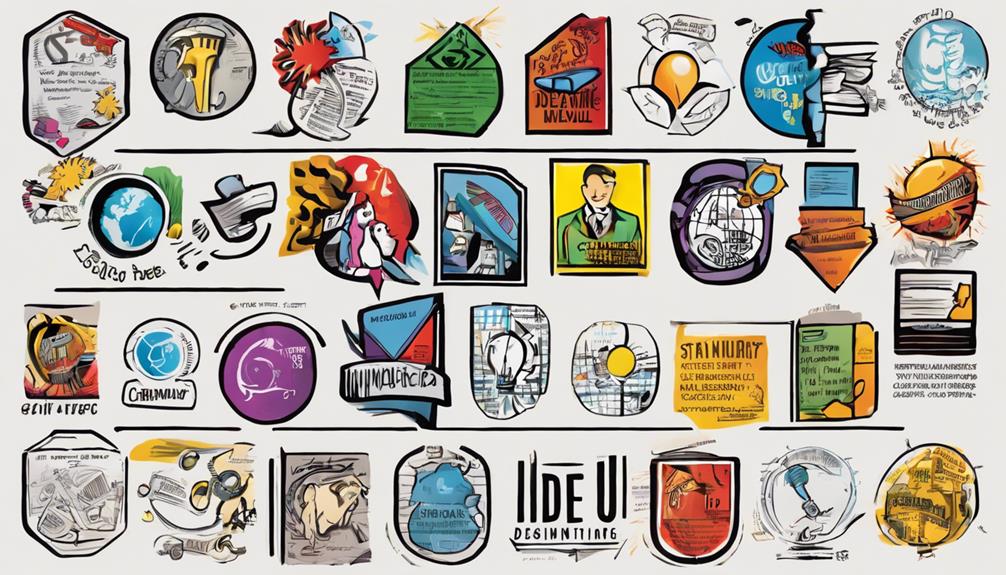
Top institutions like Cornell University and Stanford University offer key design thinking certificates that provide valuable skills in problem-solving, creativity, and collaboration essential for a design thinking career. These certificates deliver in-depth learning experiences through a mix of online classroom sessions and cohort courses. Learners engaging in these programs have access to self-paced learning modules and interactive activities to enhance their design thinking expertise. Additionally, organizations can take advantage of team enrollment options and discounts to upskill their workforce in design thinking methodologies. For individual learners, financial assistance is available, ensuring that these valuable certificates are accessible to a wider audience.
| Design Thinking Certificate | Learning Format | Special Features |
|---|---|---|
| Cornell University | Online Classroom | Cohort Courses |
| Stanford University | Online Classroom | Self-paced Learning |
| Other Top Institutions | Online Classroom | Team Discounts |
Top Design Thinking Course Picks
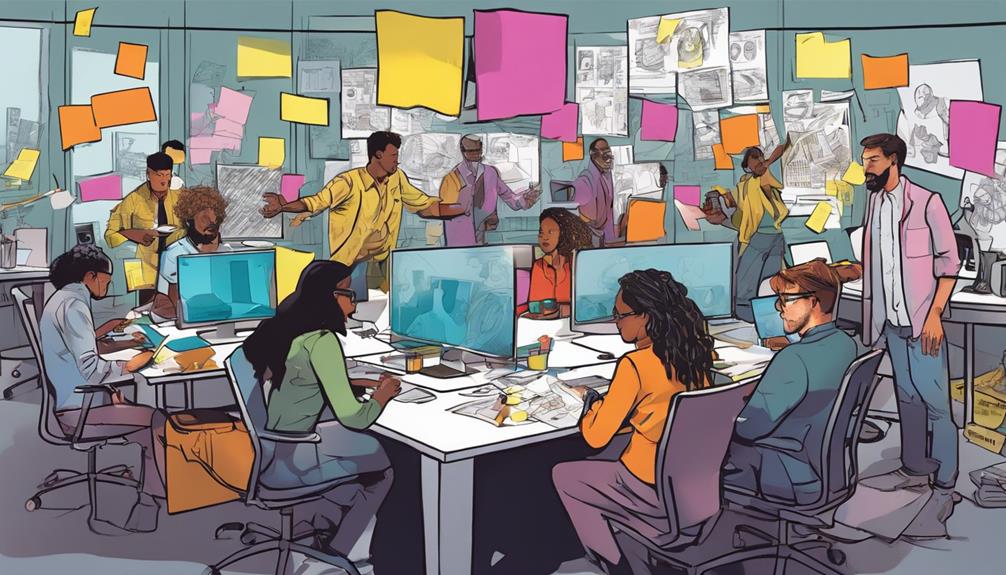
Explore renowned design thinking courses from Stanford University's d.school, IDEO U, Frog Design, IBM, and Cornell University tailored for practical learning and real-world applications.
If you're looking to enhance your design thinking skills, consider these top picks:
- Stanford University's d.school: Known for hands-on experience and practical learning.
- IDEO U: Provides engaging online courses focusing on creativity, innovation, and real-world applications.
- Frog Design: Offers industry-leading courses to drive organizational change and innovation.
- IBM: Emphasizes user-centered design principles and practical problem-solving techniques.
- Cornell University: Ideal for a thorough learning experience, catering to product, service, and infrastructure development.
For further options, you might also want to explore design thinking courses from the University of Toronto, Harvard Business, and other reputable institutions to find the program that best suits your career goals.
Design Thinking Training Highlights

Discover the key highlights of design thinking training that equip you with practical skills for user-centric problem-solving and innovation. Design thinking courses offer hands-on methodologies that prioritize tangible outcomes and innovation, guiding you to overcome obstacles with creative solutions. By enhancing your problem-solving skills, fostering creativity, and promoting collaboration, these courses provide a competitive edge in the job market. The focus on empathy, defining problems, ideation, prototyping, and testing ensures that you develop a holistic approach to solving complex challenges.
| Highlights | Description |
|---|---|
| Practical Methodologies | Courses offer practical tools and methods for user-centric problem-solving. |
| Innovation | Emphasizes innovation to drive meaningful and impactful solutions. |
| Problem-Solving | Enhances problem-solving skills through a structured and creative approach. |
Frequently Asked Questions
Where Do I Start With Design Thinking?
Start by exploring introductory design thinking courses from reputable sources. Consider specialized options for your industry. Look into team enrollment for collaborative learning. Seek practical courses with real-world projects. Check for financial aid based on your employment.
Is a Design Thinking Course Worth It?
Investing in a design thinking course is worth it. By mastering design thinking principles, you can tackle complex problems creatively, collaborate effectively, and gain a competitive edge in the job market. It's a game-changer!
How Do I Start Design Thinking?
Start your design thinking journey by enrolling in introductory courses from reputable institutions. Focus on problem-solving, mindset development, and real-world examples. Explore specialized options for managers, entrepreneurs, tech innovation, startups, or healthcare.
What Can You Do With a Design Thinking Certificate?
With a Design Thinking Certificate, you can enhance problem-solving skills, drive innovation, and collaborate effectively with teams and stakeholders. This certification also gives you a competitive edge in the job market and establishes credibility with clients.
Conclusion
To sum up, whether you're seeking to improve your skills or jumpstart your career, these top design thinking courses, certifications, and bootcamps provide a range of options to assist you in achieving success.
With a variety of programs to select from, you can discover the ideal match for your objectives and dreams.
So why delay? Take the next stride towards mastering design thinking and revealing new opportunities today!

